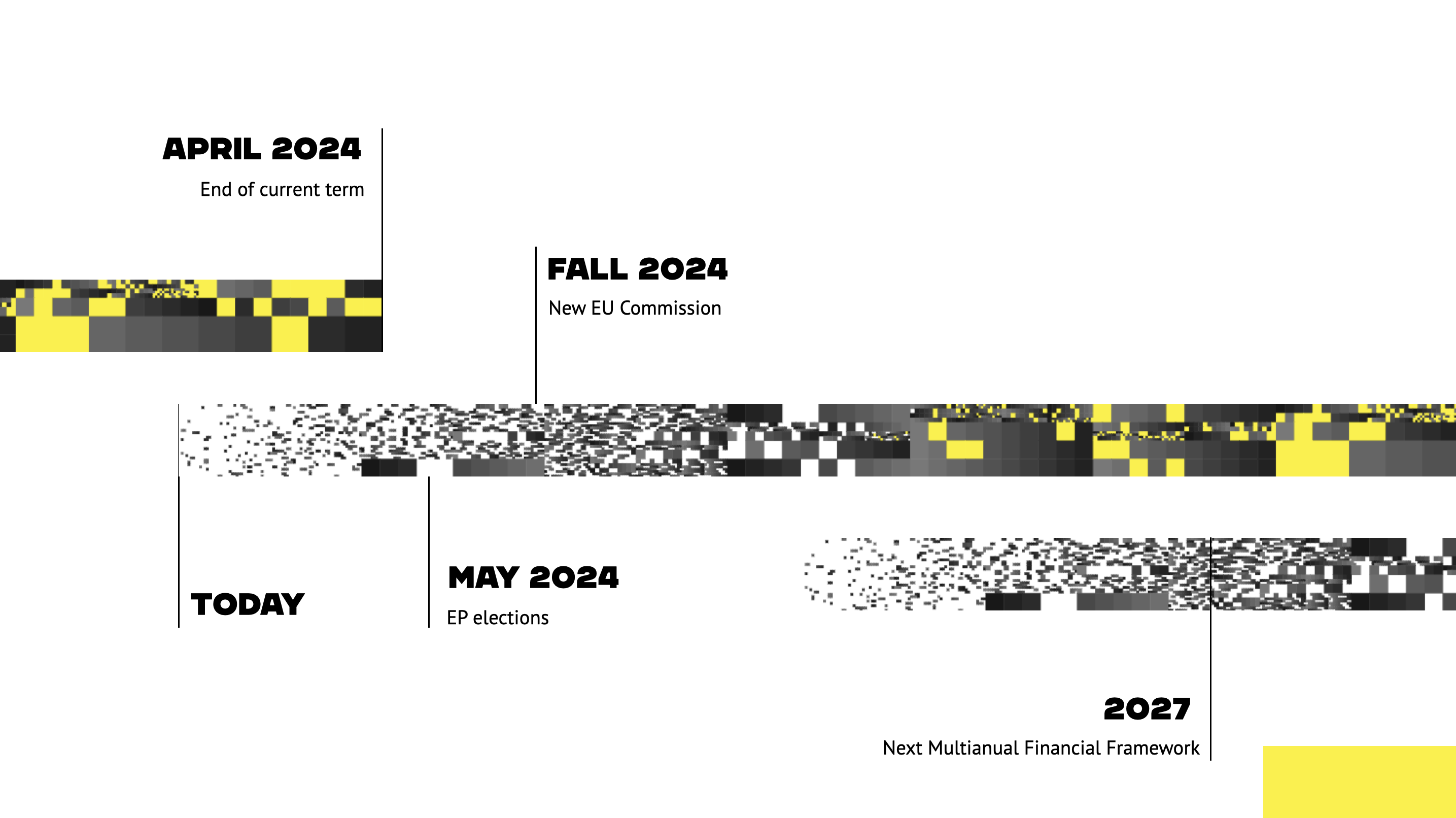Critical Infrastructure Lab launch: What should the next European Commission do?
Yesterday, at the Critical Infrastructure Lab launch event in Amsterdam, we hosted a workshop on “Imagining the future: what should the next European Commission do”. Our session focused on brainstorming ideas that could be brought up to the attention of the next Commission, whose term is about to start in the fall of 2024.

We were joined by researchers and activists with a broad range of expertise and perspectives on digital policies. Conversations like this one are part of our work on defining long-term advocacy positions, which allow public interest advocates for a more strategic approach.
Below is our selection of key insights that came up in the discussion.
Moving away from the principle of innovation
Participants suggested that the focus of EU policies must be shifted away from innovation and toward maintenance. The challenge appears to be how European Commission can prioritize building and repairing sustainable infrastructure over investments in innovation, which are pervasive in current EU policies. This discussion has been linked to existing policy proposals for the right to repair, which participants believe should be expanded to include more than just consumer products.
There is also the need to reconcile innovation and public interest regulation. As long as regulation is seen as mainly “stifling European innovation and growth”, our policy imagination will be stunted.
Funding digital public infrastructure
Another topic that received significant attention was the funding for digital public infrastructure and open source software development. Participants emphasized the importance of scaling these initiatives to achieve the EU’s digital sovereignty goals.
Concerns were raised about whether public funding for community-driven projects could create new dependencies and grant substantial power to state actors, both European and foreign. A general agreement was that diversifying funding sources (private, public, and community) would be the most effective way to mitigate these potential risks.
Keeping digital rights and the public interest in the center of the debate
Our conversation also concerned broader policy frames and narratives that can shape policy debates. There is a need to introduce new concepts, as part of a longer arc to shift from the Digital Single Market focus, and to strengthen the value-based perspective, introduced by the current Commission.
Participants proposed the principle of “democracy by design”, as an approach that secures rule of law and proper governance mechanisms for internet infrastructures. This could become the basis of specific, new rights – for example measures that protect encryption, based on a ‘right to resistance”.
Securing public interest also requires establishing trust in the state and its interventions. Today, Europeans accept the state as the regulator; but other interventions – where the EU plays the reactive role of builder of infrastructures and ecosystems – is often met with distrust.
Working on policy proposals for the next European Commission
At Open Future we work on turning ideas like these connected at the workshop into specific policy proposals for the European policymakers. We also develop policy narratives, in which these proposals can be anchored.
Follow our work as we elaborate on inputs coming up from conversations, such as the one today, and do reach out with ideas, edits and additions to keep this conversation going.
Finally, if you’d like check out collective notes from the whole Critical Infrastructure Lab launch event, including our session, go here.




